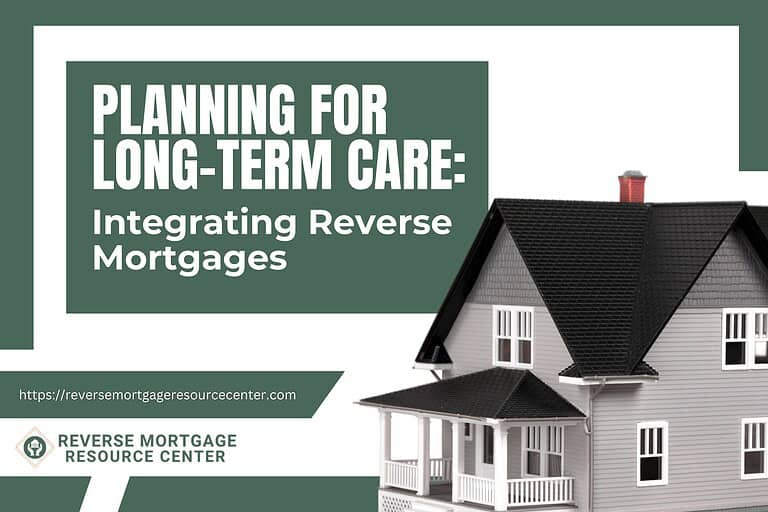Evaluating Your Retirement Plan: The Role of Reverse Mortgages in Periodic Reviews
In the tapestry of retirement planning, the threads of financial stability, health considerations, and lifestyle aspirations are interwoven. For seniors facing the complex challenges of retirement, the importance of regular reviews and adjustments to their financial plans cannot be overstated. As the journey through retirement unfolds, incorporating tools like reverse mortgages into periodic assessments becomes pivotal. This article delves into the significance of regularly reviewing retirement plans, explores the role of reverse mortgages in these evaluations, and provides a detailed checklist for seniors to safeguard their financial well-being during retirement.
The Importance of Regular Reviews
Retirement planning is an ongoing process that demands vigilance and adaptability. A set-and-forget strategy can leave retirees vulnerable to unforeseen circumstances. Regular reviews offer a proactive approach to ensure that financial plans remain robust and aligned with evolving goals.
Market Volatility and Economic Changes
Financial markets are dynamic ecosystems, susceptible to rapid shifts and fluctuations. Periodic reviews allow retirees to assess the performance of their investment portfolios, make necessary adjustments, and seize opportunities or mitigate risks based on current economic conditions.
Health Considerations
As seniors age, health becomes a paramount consideration. Medical expenses can escalate, impacting the financial stability of retirement plans. Periodic reviews enable seniors to evaluate their health insurance coverage, assess potential long-term care needs, and adjust their financial plans accordingly to ensure they are well-prepared for health-related costs.
Lifestyle and Spending Adjustments
Retirement isn’t a static phase; lifestyles and spending patterns often evolve. Regular reviews provide an opportunity to align financial plans with current priorities, ensuring that retirees can enjoy their retirement years without compromising their financial security.
Incorporating Reverse Mortgages into Periodic Financial Assessments
Reverse mortgages, often underutilized, can serve as a valuable component in bolstering retirement plans. Tailored for homeowners aged 62 and older, reverse mortgages offer a way to convert home equity into income tax-free funds without selling the home or incurring additional monthly payments.
Supplementing Retirement Income
One of the primary advantages of reverse mortgages is their ability to provide a reliable source of supplemental funds. By tapping into home equity, retirees can receive funds that can be used to cover daily expenses, healthcare costs, or unexpected financial challenges, offering a safety net in times of need.
Mitigating Sequence of Returns Risk
The sequence of returns risk poses a potential threat to the performance of investments during the early years of retirement. Reverse mortgages can act as a strategic tool to mitigate this risk by providing an alternative source of funds, allowing retirees to delay tapping into their investment portfolios during market downturns.
Enhancing Liquidity
Home equity is a valuable, yet often dormant, asset in retirement planning. Incorporating reverse mortgages can enhance liquidity, providing seniors with access to a pool of funds that can be used strategically to address financial needs or investment opportunities.
Checklist and Considerations for Seniors
A comprehensive checklist ensures that retirees cover all aspects of their retirement plan during periodic reviews. Here’s a detailed guide:
Review Investment Portfolios
Regularly assess the performance of investment portfolios. Consider diversification and risk tolerance, making adjustments as needed to align with financial goals and market conditions.
Evaluate Health Insurance Coverage
Healthcare needs change over time. Review and update health insurance coverage accordingly. Consider long-term care insurance to protect against potential high medical costs.
Assess Monthly Budget and Expenses
Evaluate monthly budgets and spending patterns. Make adjustments to accommodate lifestyle changes and unexpected expenses, ensuring the budget remains realistic and sustainable.
Explore Reverse Mortgage Options
Consult with a financial advisor to explore the potential benefits of incorporating a reverse mortgage into the retirement plan. Understand the terms, implications, and how it aligns with the overall financial strategy.
Consider Downsizing or Relocation
Assess whether downsizing or relocating to a more cost-effective area is a viable option. This can free up additional funds and reduce housing-related expenses.
Update Estate Planning Documents
Ensure that estate planning documents, including wills and trusts, are up-to-date. Review beneficiaries and consider any changes based on family dynamics or financial circumstances.
Stay Informed About Government Programs
Stay informed about government programs, tax incentives, and benefits for seniors. Take advantage of available resources to maximize financial well-being during retirement.
Explore Part-Time Employment Opportunities
Consider whether part-time employment is feasible and desirable. This can supplement retirement income and provide a sense of purpose and engagement.
Evaluate Social Security Strategies
Review Social Security claiming strategies to maximize benefits. Consider factors such as delaying benefits, spousal benefits, and potential impacts on taxation.
Assess Long-Term Care Needs
Evaluate potential long-term care needs and explore options for covering these costs. This may include long-term care insurance, Medicaid planning, or utilizing home equity through a reverse mortgage.
Review Tax Planning Strategies
Regularly review tax planning strategies to optimize tax efficiency in retirement. Stay informed about changes in tax laws that may impact your financial situation.
REVERSE MORTGAGE RESOURCE CENTER ~LIVE LIFE ON YOUR TERMS~
Our Lending Team has been serving our clients since 2004. We are passionate about serving our clients with integrity to help them achieve their financial goals.






